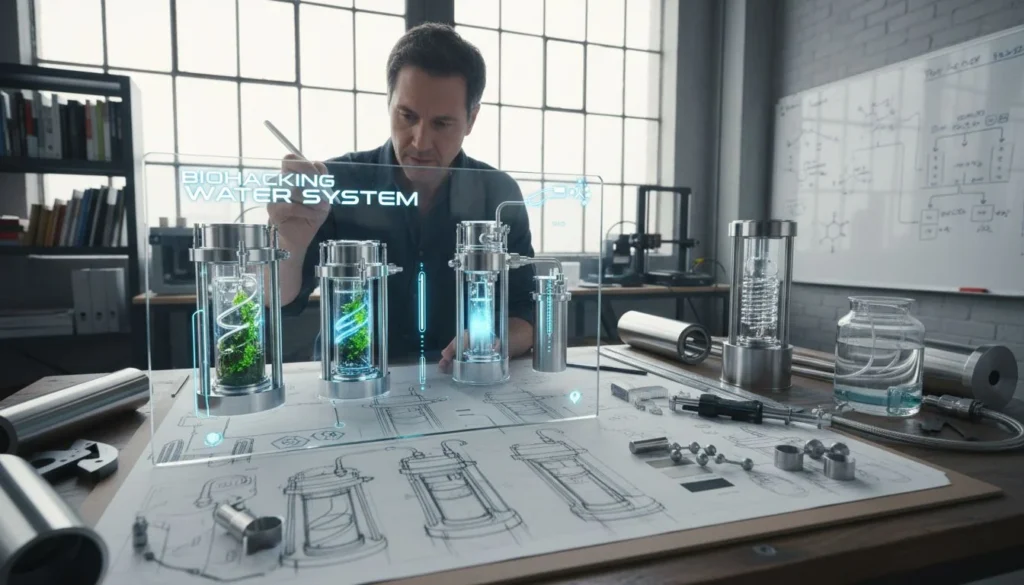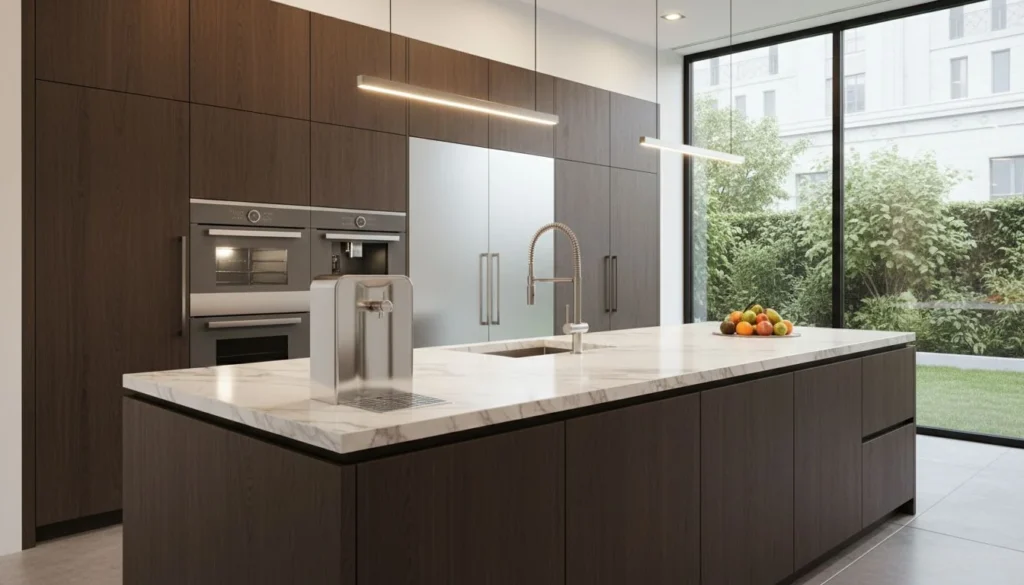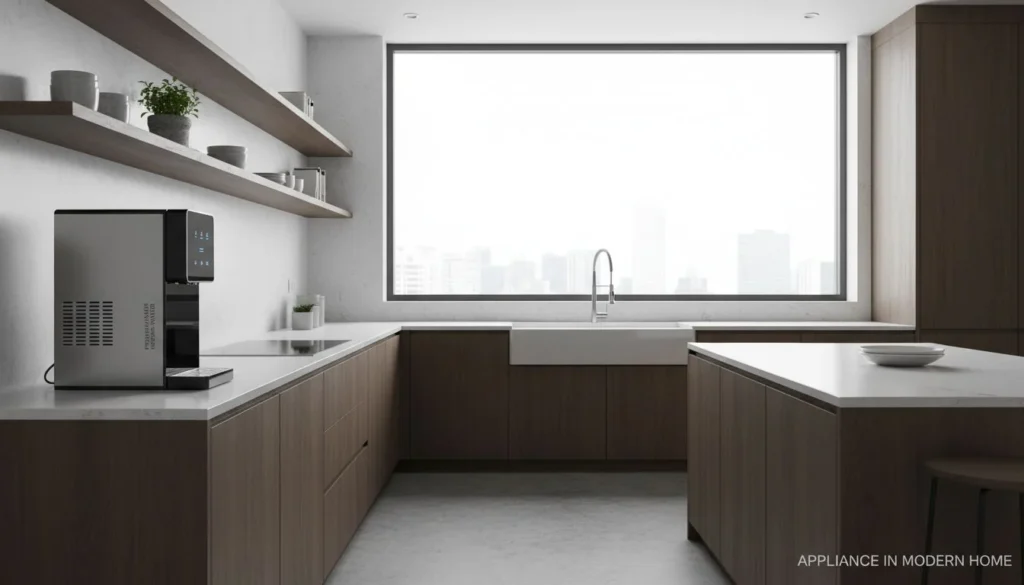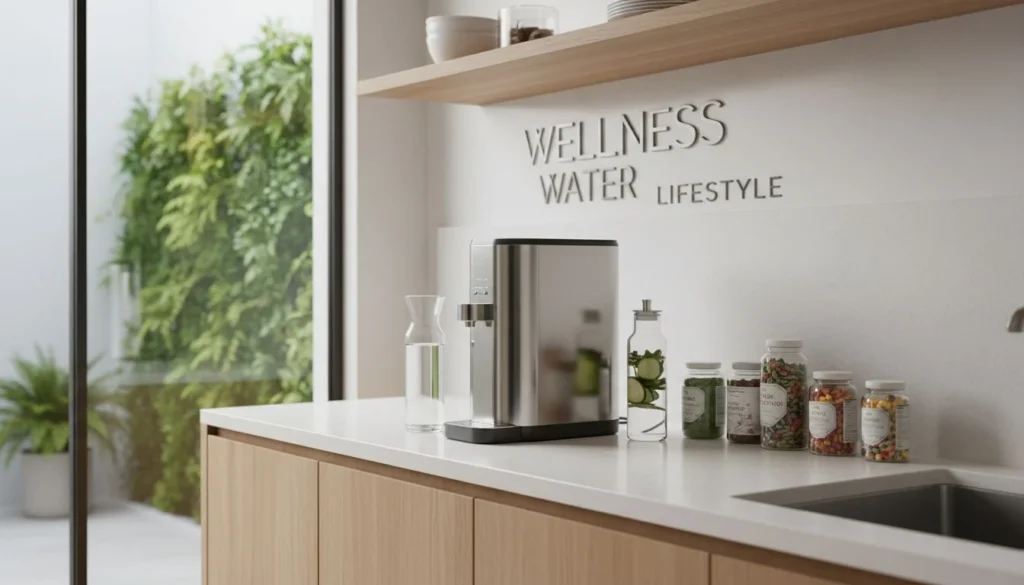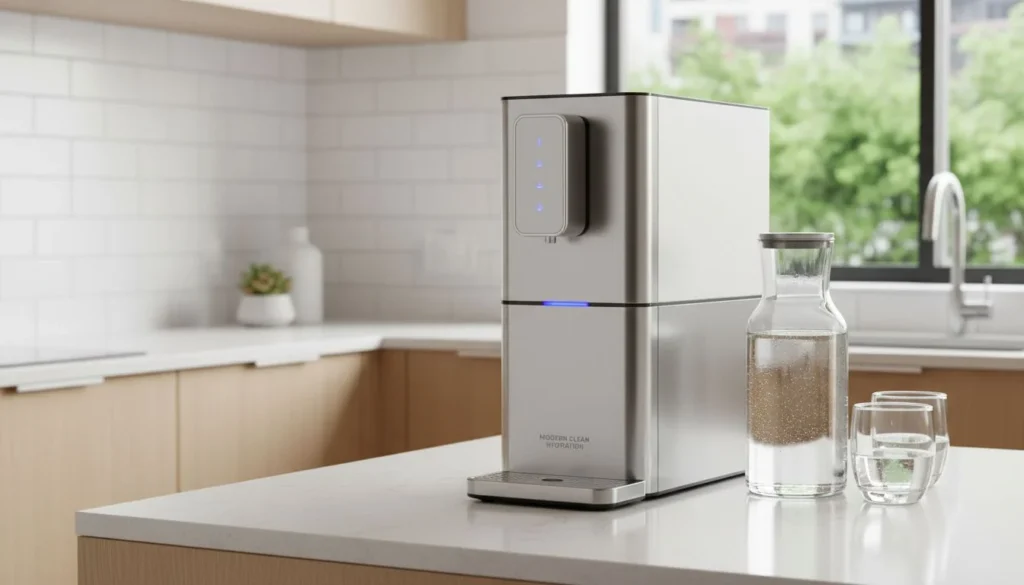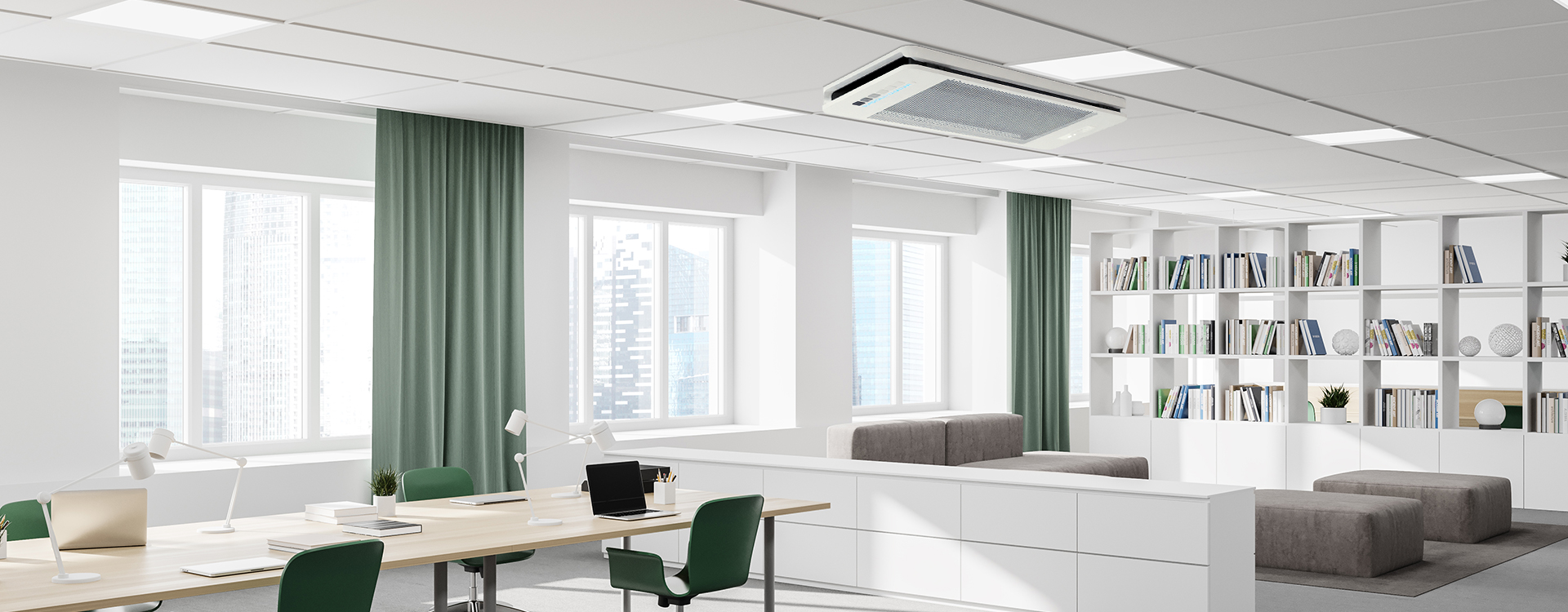
A spacious, well-lit office with a hisoair ceiling-mounted air purifier installed for enhanced air quality.
Introduction
HEPA filters are a popular choice in air purification, capturing airborne particles and improving air quality across various environments. But what makes HEPA filters so effective, and are they the best option for all types of air purification needs?
Air pollution isn’t just an outdoor problem; indoor air quality also significantly impacts our health. HEPA filters have become essential in air purifiers due to their proven efficiency in capturing particles like dust, allergens, bacteria, and even viruses. They are widely used in homes, schools, hospitals, and offices for their reliability and effectiveness in maintaining a clean indoor environment.
HEPA filters, short for High-Efficiency Particulate Air filters, are known to trap 99.97% of particles as small as 0.3 microns, providing cleaner air by capturing dust, pollen, pet dander, and even some bacteria and viruses. Their high efficiency makes them a trusted solution in both residential and commercial settings, offering essential air quality improvement where it's needed most.
HEPA filters are highly effective in various environments, capturing 99.97% of particles as small as 0.3 microns.True
Due to their high efficiency, HEPA filters are commonly used in homes, schools, hospitals, and offices to improve air quality.
If you're wondering whether a HEPA filter air purifier is the best choice for your space, let's take a closer look at how HEPA filters work, how they compare with other filtration technologies, and what unique benefits they bring to different settings.
What is a HEPA Filter?
HEPA (High-Efficiency Particulate Air) filters are designed to trap 99.97% of particles as small as 0.3 microns which is HEPA filtration efficiency1, including dust, pollen, pet dander, and certain bacteria and viruses. This level of filtration is ideal for environments that require high air quality standards, such as homes, hospitals, and offices.
Why HEPA Filters Are Highly Effective for Clean Air
HEPA filters excel at capturing tiny particles, thereby providing a cleaner and healthier indoor environment. They are especially beneficial for individuals with allergies or respiratory sensitivities, as they reduce common indoor allergens and pollutants.
How Do HEPA Filters Trap Airborne Contaminants?
HEPA filters consist of a dense network of fibers that capture particles through various filtration mechanisms, such as interception, impaction, and diffusion. As air flows through the filter, these fibers trap both large and small particles, ensuring a high level of air cleanliness and quality.
Yes, HEPA filters are suitable for medical facilities.True
Due to their high efficiency, HEPA filters are often used in medical settings to ensure contaminant-free air.
Why are HEPA Filters Effective in Air Purifiers?
HEPA filters are highly effective because of their unique design, which enables them to capture a broad range of airborne particles. In sensitive environments like medical facilities, this efficiency is crucial for maintaining a safe and clean air quality.
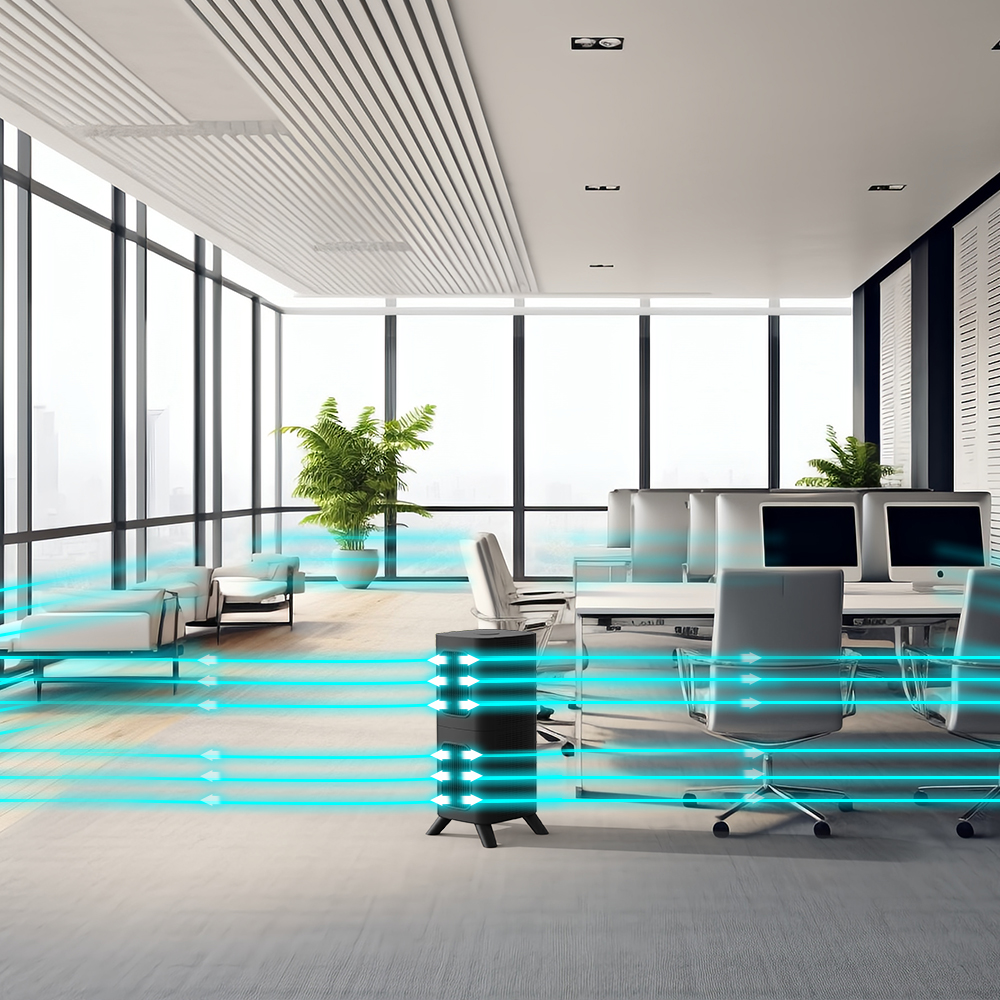
Air purifier unit with HEPA filter installed in an office room
Understanding the Functioning of HEPA Filters
HEPA filters operate by forcing air through a fine mesh, which traps harmful particles more effectively than conventional filters rather than Medical Use of HEPA Filters2. These filters continuously work within air purifiers to maintain a high level of air cleanliness in any space they’re used.
What Makes HEPA Filters Stand Out?
The structure of HEPA filters enables them to capture particles as small as 0.3 microns, making them incredibly effective against common indoor pollutants, including allergens, dust, and pathogens. This technology is essential in settings where maintaining low levels of contaminants is crucial.
HEPA Filters vs. Other Filtration Technologies?
How do HEPA filters compare to other air purification technologies like ion generators, plasma filters, or UV light? Each technology has its strengths and weaknesses, but HEPA filters stand out as a safer, more reliable choice for human health.
Key Differences Between HEPA and Other Filters
Unlike ionization and plasma technology, which may produce ozone as a byproduct, HEPA filters trap particles without releasing harmful emissions, making them a preferred choice for indoor air quality improvement.
Are HEPA Filters Safer for Continuous Use?
Ionization and plasma technologies work by releasing ions or reactive particles, which can lead to ozone formation—a respiratory irritant Risks of Ionization Filtration3. HEPA filters avoid this issue by physically capturing particles, making them a safer option for continuous use in homes, schools, and workplaces.
HEPA filters can trap gases like VOCs.False
HEPA filters are designed to capture particles, not gases or odors; an activated carbon filter is needed for VOCs.
Comparing Filtration Technologies
Here’s a quick comparison of various filtration technologies to highlight their strengths and best applications:
| Filtration Technology | Efficiency | Byproducts | Common Applications | Key Benefits | Limitations |
|---|---|---|---|---|---|
| HEPA Filter | High | None | Homes, hospitals, | Removes 99.97% of particles | Does not remove gases like VOCs4 |
| offices | down to 0.3 microns | ||||
| Activated Carbon | Moderate | None | Air purifiers, HVAC | Adsorbs VOCs, odors | Less effective for particulates |
| Ion Generator | Moderate | Ozone | Industrial, | Reduces allergens and particles | Ozone may irritate respiratory system |
| air purifiers | |||||
| UV-C Light | Variable | None | Hospitals, labs, | Destroys bacteria and viruses | Limited effectiveness for particles |
| air purifiers | |||||
| Plasma Technology | High | Ozone | Industrial | Effective for sterilization | Produces reactive particles |
Ideal Uses for HEPA Filters
HEPA filters are highly adaptable and can be used in various environments, including homes, offices, and medical facilities. They are particularly effective in reducing allergens and pathogens, creating a healthier indoor environment.
Who Benefits Most from HEPA Filters?
HEPA filters are most beneficial in environments where high air purity is essential, such as medical facilities, schools, and homes with allergy-sensitive individuals.
Detailed Applications of HEPA Technology
By trapping fine particles, HEPA filters reduce allergens and pathogens, making them ideal for homes, offices, and hospitals. They provide a reliable air quality solution where it’s needed most.
What Does HEPA Stand For?
HEPA, or High-Efficiency Particulate Air, is a standardized filtration level that mandates the removal of 99.97% of particles down to 0.3 microns, contributing to a healthier indoor environment HEPA and VOC Filtration4.
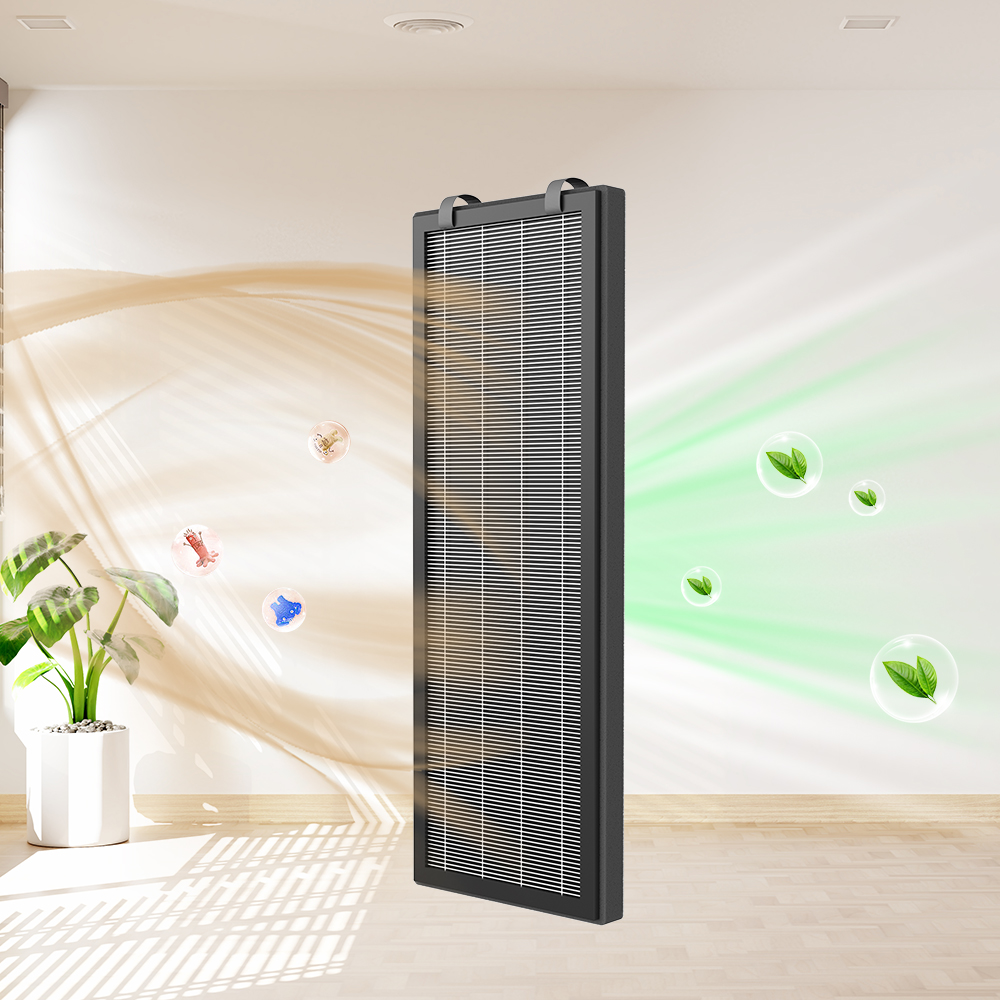
HisoAir HEPA Filter Air Purifier Replacement
The Origins and Advancements of HEPA Technology
Initially developed by the U.S. military during World War II to filter radioactive particles, HEPA technology has evolved to become a critical component in air purification for commercial and residential use. Today’s HEPA filters offer improved airflow with reduced resistance.
Historical Development of HEPA Filters
Originally designed for military use, HEPA filters have since been adapted to meet the high-efficiency filtration needs in modern environments, including homes and workplaces.
Modern Advancements in HEPA Technology
Modern HEPA filters incorporate advanced media that allows for high airflow and low resistance, making them quieter and more efficient in air purifiers used today.
Why Do HEPA Filters Need Carbon Filters?
While HEPA filters are exceptional at capturing particles, they do not remove gases or odors. Activated carbon filters complement HEPA filters by adsorbing volatile organic compounds (VOCs) and unpleasant odors.
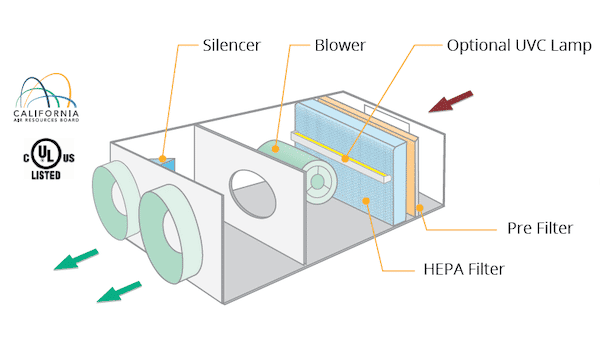
A diagram of a filter-based air purifier
Comprehensive Filtration with Dual Filters
Pairing HEPA with activated carbon filters ensures comprehensive air purification by removing both particles and gases. This dual approach is particularly effective in environments where VOCs are a concern.
Benefits of Using Both HEPA and Carbon Filters
In spaces with both particles and gaseous pollutants, combining HEPA and carbon filters delivers a complete air purification solution, addressing a broader spectrum of contaminants.
Benefits of HEPA Filters in Air Purifiers
HEPA filters are a highly effective and low-maintenance option for long-term air quality improvement. They reduce contaminants and provide enhanced air quality in any indoor environment.

Purifier in the living room
Why HEPA Filters Are Ideal for Homes and Workspaces
HEPA filters reduce allergens, dust, and pet dander, offering cleaner, healthier air indoors. Their low maintenance needs make them a convenient choice for long-term use.
Long-Lasting and Efficient
HEPA filters require replacement only every 6–12 months, depending on usage. Their durability and efficiency make them a cost-effective choice for sustained air quality management.
Conclusion
HEPA filters offer a proven solution for improving indoor air quality by capturing fine particles, ensuring cleaner and healthier environments. Initially developed by the military, HEPA filters remain a preferred choice for air purification across homes, workplaces, and medical facilities, thanks to their safety, reliability, and continuous advancements.
-
[HEPA Filtration Efficiency]: HEPA filters remove 99.97% of particles at 0.3 microns, making them ideal for removing fine particles and allergens. ↩
-
[Medical Use of HEPA Filters]: HEPA filters are commonly used in medical facilities to ensure pathogen-free air and reduce contamination. ↩
-
[Risks of Ionization Filtration]: Ionization and plasma technologies may emit ozone, which can irritate the respiratory system. ↩
-
[HEPA and VOC Filtration]: While HEPA is effective for particles, VOCs require an activated carbon filter for absorption. ↩ ↩


